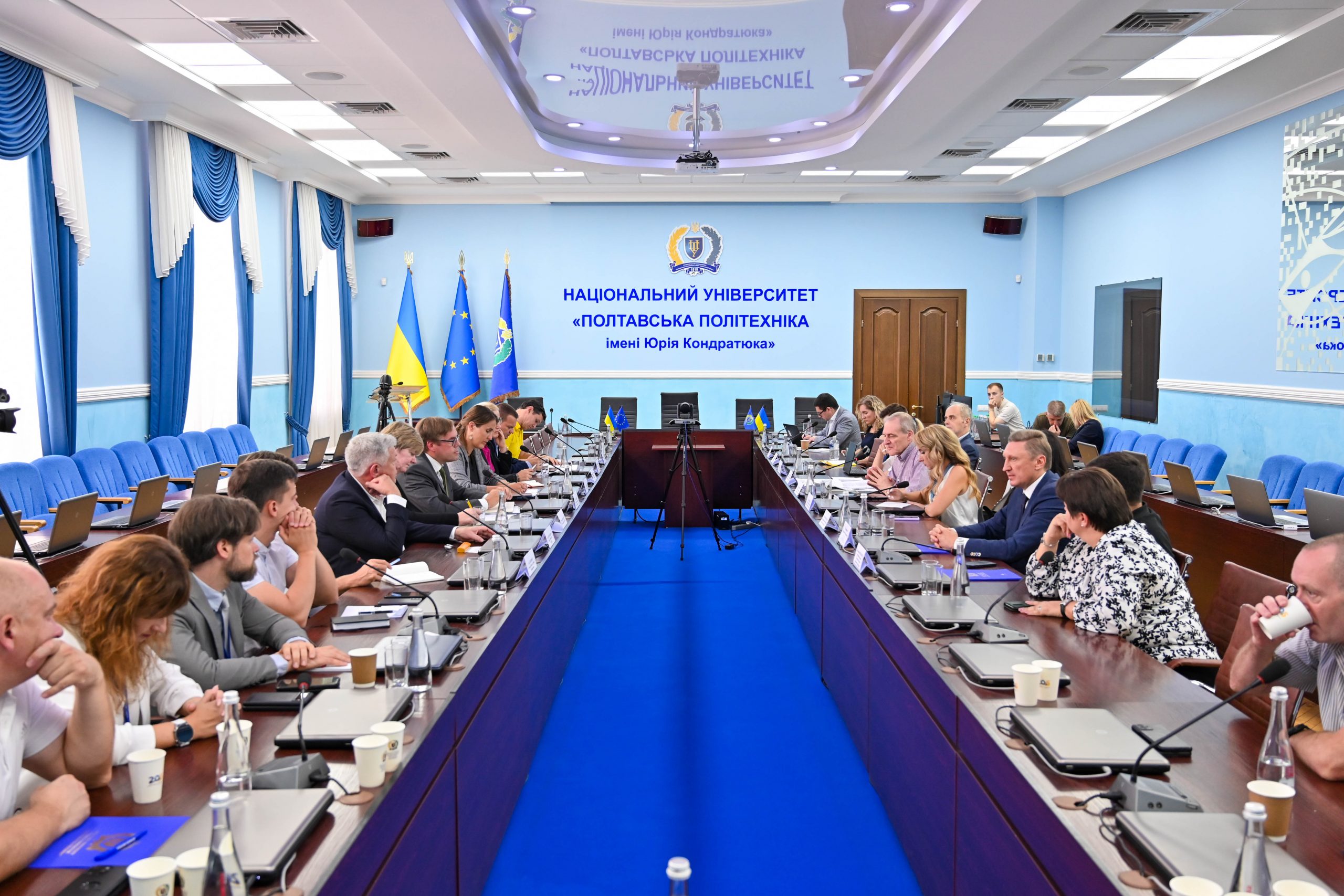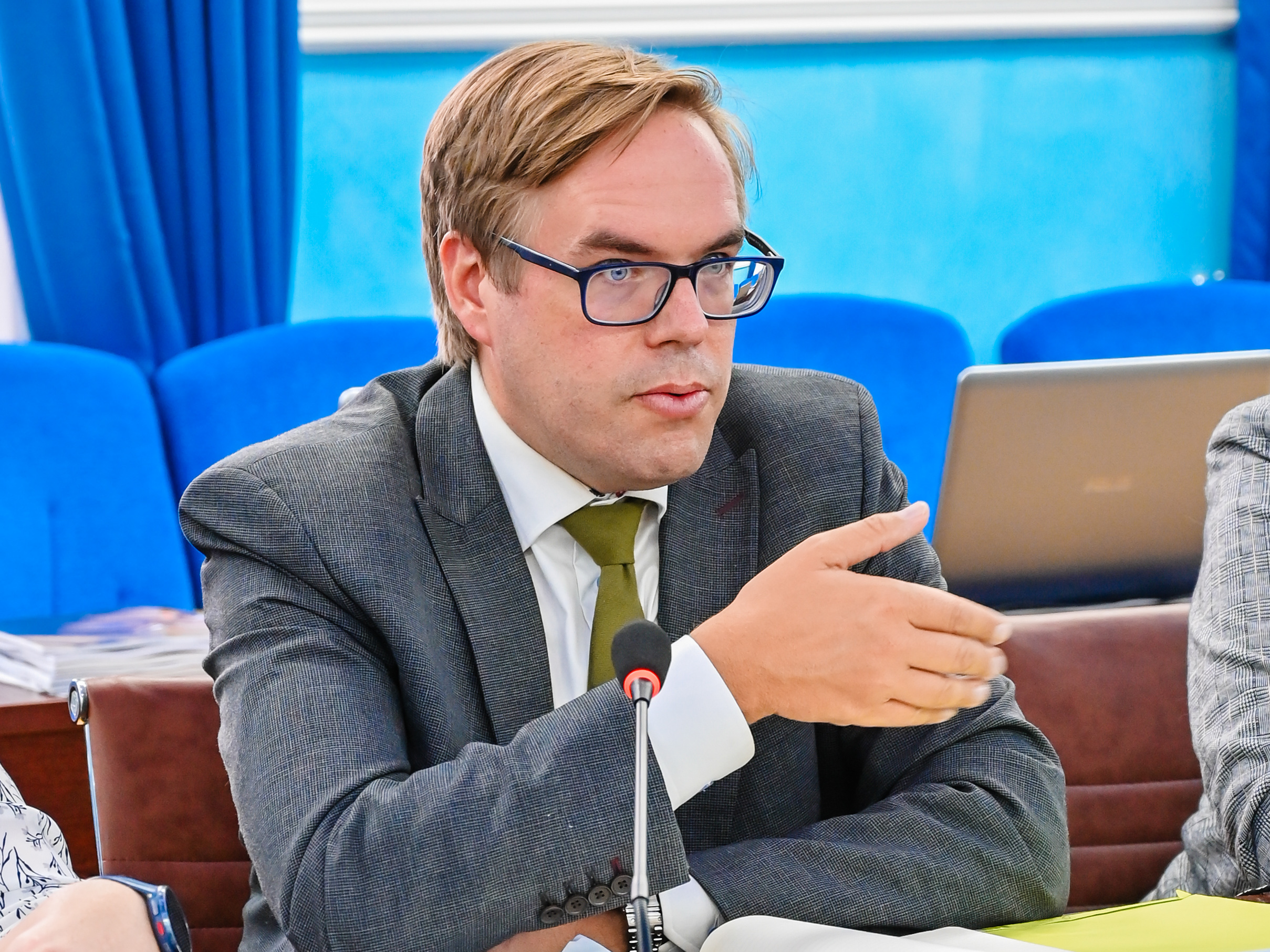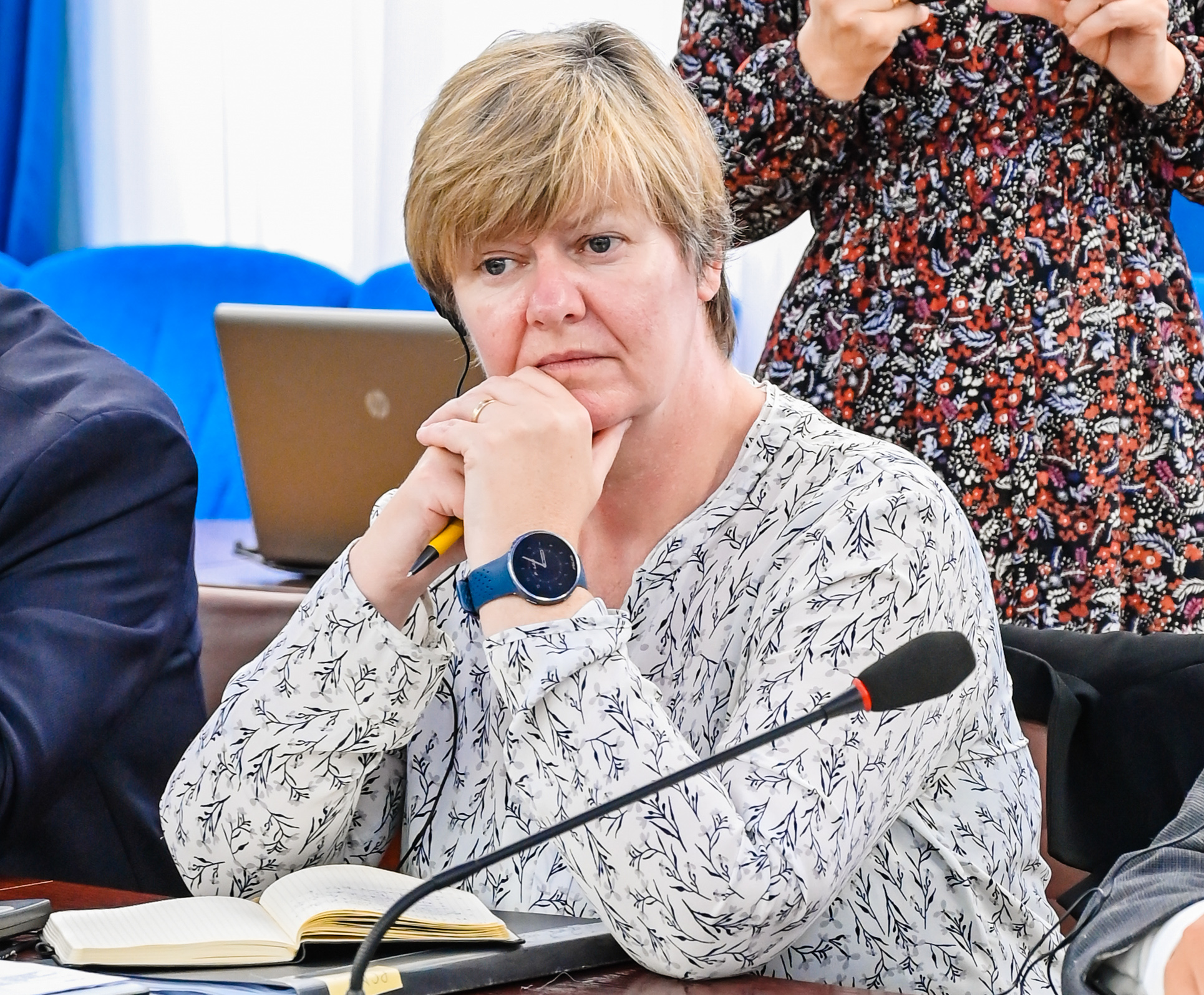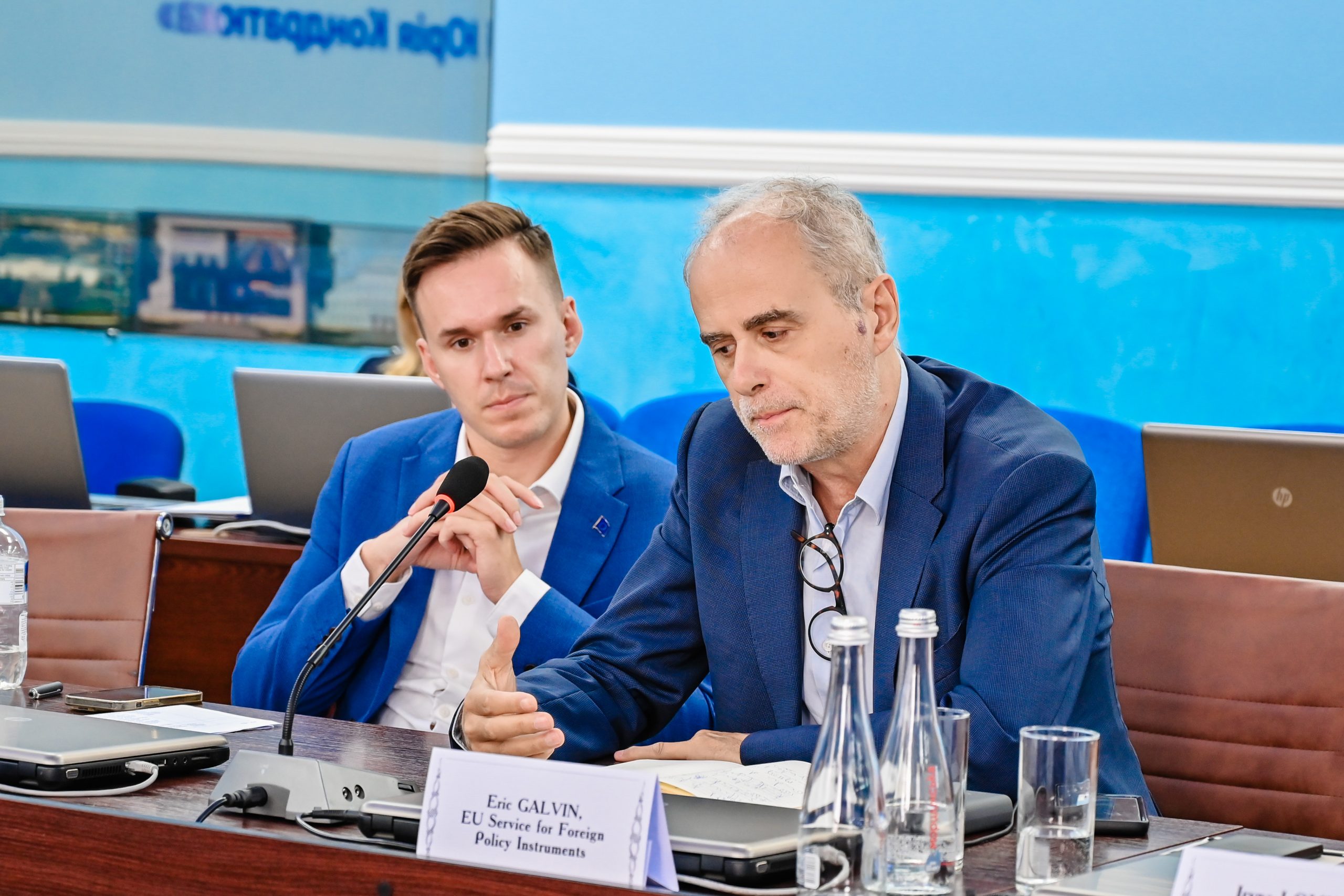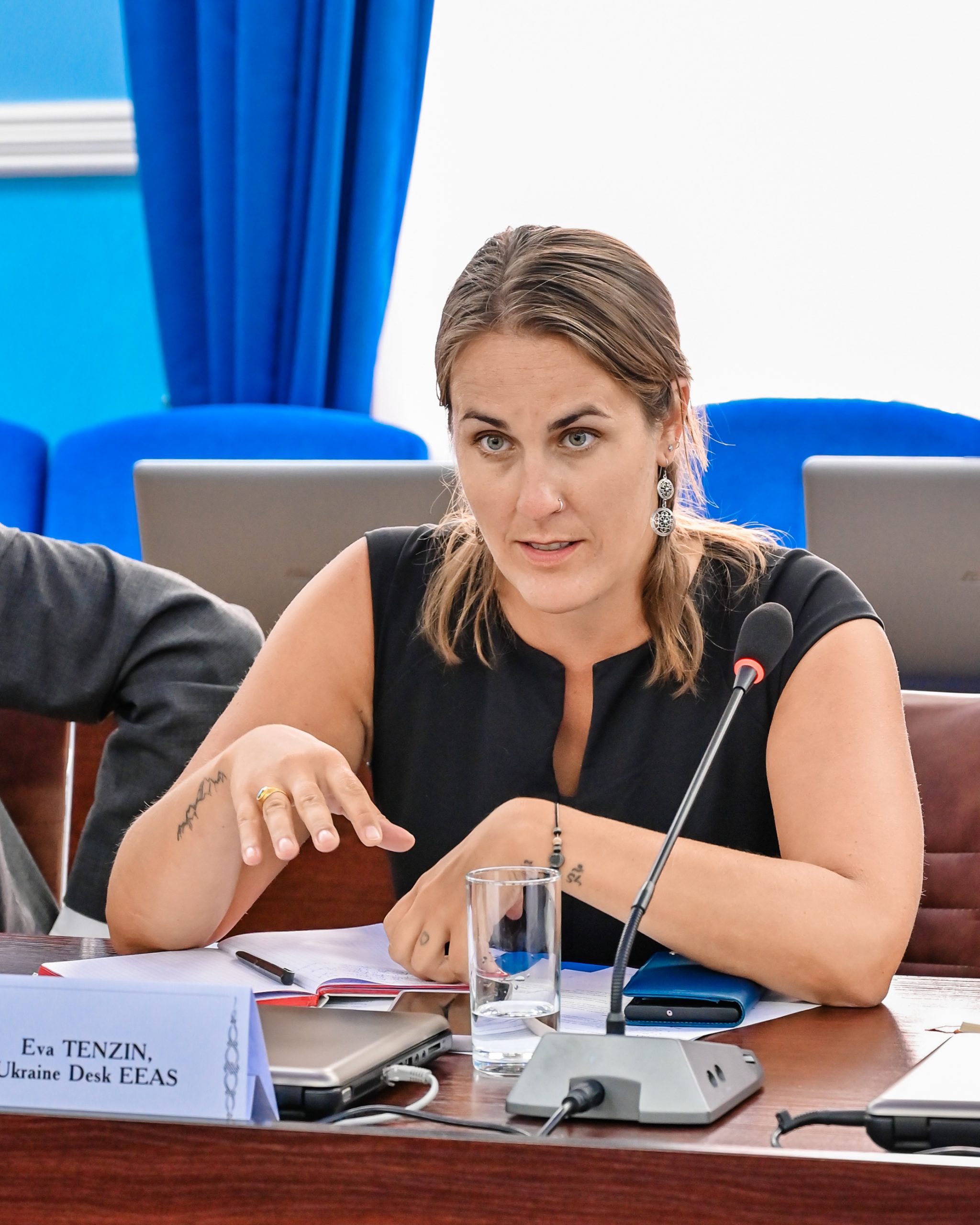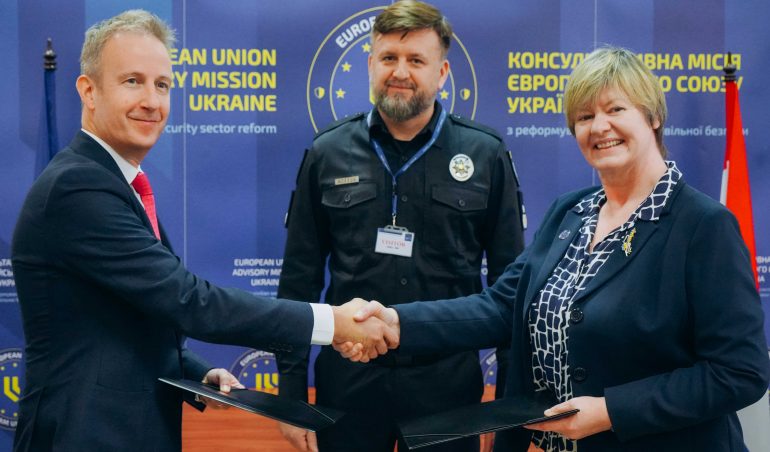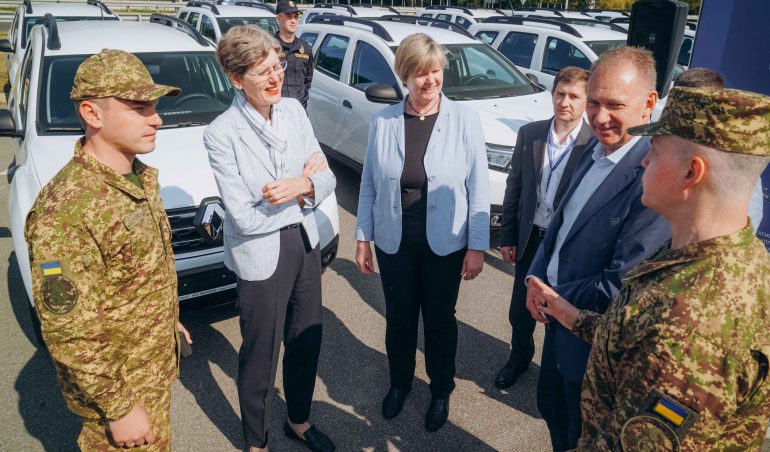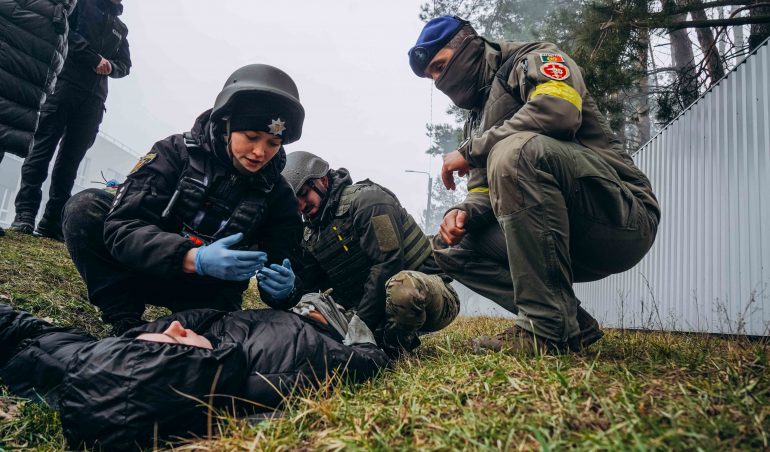Stabilisation Support for Liberated Territories from the EU: a Fact-Finding Mission in Ukraine
September 18, 2024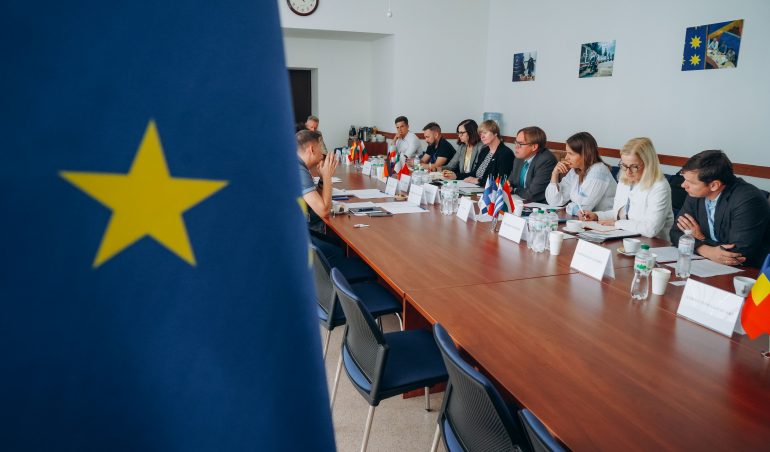
On 10 – 12 September, the EU Advisory Mission (EUAM) Ukraine supported a stabilisation fact-finding mission from the European External Action Service (EEAS), the European Commission, and the EU member states aimed to assess the stabilisation needs of Ukraine’s Liberated and Adjacent Territories (LAT), with a particular focus on reintegration and post-war reconstruction efforts. The delegation, led by Peter Larsson from the EEAS Peace, Crisis Management and Mediation Division (PCM), was accompanied by EUAM’s Deputy Head of Mission, Maura O’Sullivan.
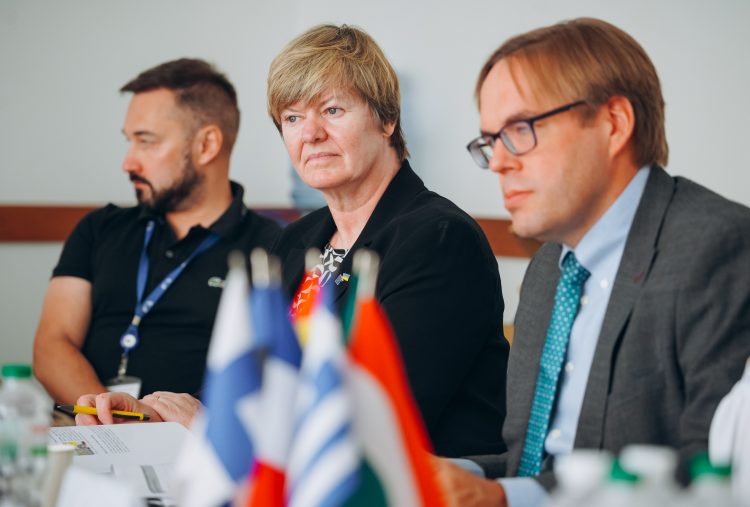
The PCM delegation began its mission in Kyiv with meetings with representatives from the United Nations Human Rights Monitoring Mission and the representatives of Ukraine’s Ministry of Reintegration of Temporarily Occupied Territories. Discussions centred on Ukraine’s Strategy for Reintegration, which focuses on restoring governance, re-establishing the rule of law, and supporting social cohesion in liberated areas. This strategy, to which the EU (EEAS, COM, EUAM Ukraine) have contributed, was highlighted as a crucial element in maintaining stability and facilitating long-term recovery in war-affected regions.
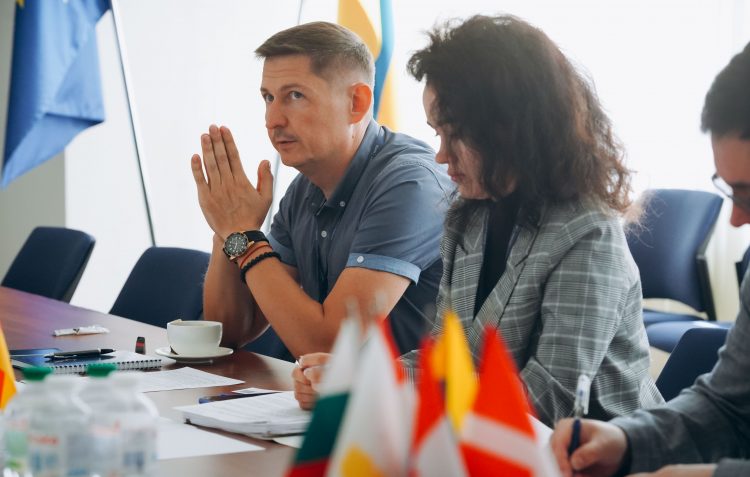
The delegation also engaged with the National Police and National Guard of Ukraine to address the operational challenges of stabilising LAT. These meetings underscored the importance of Ukrainian Stability Policing Capabilities in maintaining public order, rebuilding trust between law enforcement agencies and communities, and managing the reintegration of internally displaced people.
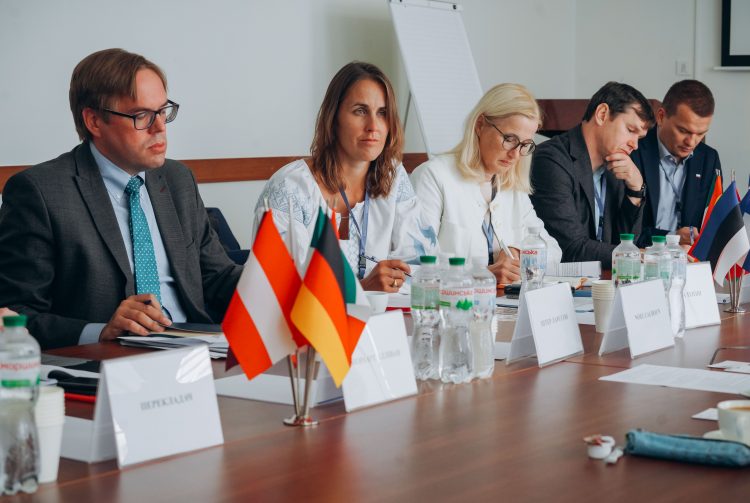
A key element of the mission was the delegation’s visit to Poltava, where they met with Filip Pronin, the Head of the Poltava Regional Military Administration, civil society organisations (CSOs), and the newly established Centre for Veteran Development at Poltava Polytechnic University. Discussions focused on providing psychosocial and legal support to veterans returning from the frontlines and their families, as well as promoting transitional justice initiatives in LAT.
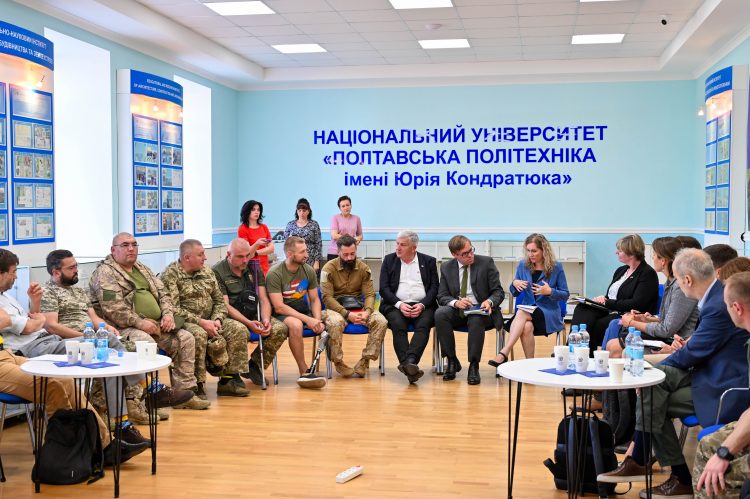
In addition to Poltava, the delegation met with local authorities of other regions to explore opportunities for collaboration with the Kharkiv and Sumy regions, both of which continue to endure frequent Russian aerial and artillery attacks. These regions remain critical to Ukraine’s broader stabilisation and reconstruction efforts, given their significant populations and industrial bases.
Further meetings in Poltava focused on transitional justice, with the delegation engaging with CSOs such as the Kharkiv Human Rights Protection Group and the Coalition “Luhansk Region, Women, Peace and Security”. These discussions focused on documenting war crimes and supporting transitional justice mechanisms to ensure accountability for crimes committed during the invasion.
The fact-finding mission is expected to result in a comprehensive set of recommendations for EU and Member States’ support in the stabilisation of LATs. The findings will include proposals for strengthening public administration, facilitating economic recovery, and addressing long-term challenges related to veteran reintegration and conflict management. The EEAS and EUAM will continue to monitor the situation in Ukraine and work with local and international stakeholders to ensure the effective coordination of stabilisation support efforts.


